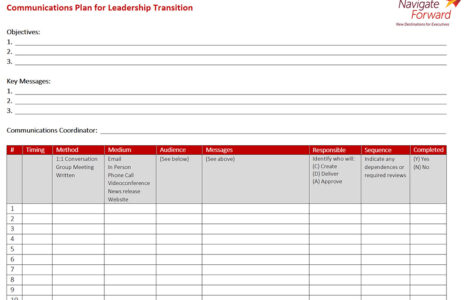This article was updated in March 2024 to reflect new statistics and trends.
In an ideal world, professional development never ends. Yet by the time senior leaders achieve a C-suite position, the training courses, peer roundtables and opportunities for new learning begin to run thin. Corporate board service can fill that gap, bringing numerous benefits for the individual and their employer.
Nearly 70 percent of first-time directors are actively employed
Board of director roles among current executives represent a growing trend. According to Spencer Stuart’s annual profile of the S&P 500, nearly 70 percent of first-time directors are actively employed. The average age of a board member now stands at 63 years old; women now comprise one-third of all S&P directors.
Board Work Yields Cross-Pollination of Ideas, Industries and Perspectives
Whether it’s a compensated board role with a public or private company, or even a volunteer opportunity with a non-profit organization, board service enables executives to leverage their expertise in new ways.
Board service enables executives to leverage their expertise in new ways
Instead of making hands-on decisions and overseeing day-to-day operations, leaders get a chance to pivot. Board service requires directors to step back, assess the big picture, then guide others through governance and thought leadership. It’s an exercise that helps CEOs and C-suite leaders expand their knowledge and capabilities.
Other advantages of board service while employed include:
Exposure to different leadership styles, cultures and business models. Board work brings together skilled executives from varied backgrounds and industries, all working together to advance a common cause. It’s an ideal environment to take in different business practices that can enhance an executive’s day job.
New perspectives on key issues. All boards tackle similar issues, from risk and financial accountability to growth and sustainability. What board work offers is a new lens to consider these challenges from different viewpoints. Executives benefit from new insights; their employers benefit from greater diversity of ideas.
Broader connections and resources. A robust professional network helps senior leaders stay current with their industry, validate ideas with peers, and tap specialized resources when needed. Corporate board service at public or private companies introduces executives to talented individuals from various geographies, industries and disciplines who may help the company in the future.
Better communication to their own board. Firsthand work as a director hones a leader’s ability to work with their own corporate board. There’s a better understanding of the director’s role, the requirements (and limits) of governance, and expectations of the position—all of which can strengthen the CEO or C-suite leader’s relationship with their own board members.
Help Executives Near Retirement Plan An Encore Chapter
Board service can also serve as an off-ramp to retirement that keeps succession plans moving for high-profile employees. It’s a strategy that more organizations are pursuing in order to retain and advance next-generation leaders, and to streamline the transition process for all involved.
Board service can serve as an off-ramp to retirement that keeps succession plans moving
Helping a serving executive land one or more corporate board seats acknowledges the leader’s talents and contributions, while simultaneously supporting their next chapter.
Landing a board role is a common goal for senior leaders, but it can take months (or years) to find the right opportunity. Starting your search early, while still employed, can make first-time director candidates more attractive to potential corporate boards.
Match Skills, Experience to Board Work in Complementary Industries
If you or your organization are considering corporate board work while employed, a transparent approach will yield the best results.
Consider:
Which organizations are appropriate? Which should be avoided due to conflicts of interest? Good matches often focus on companies of similar sizes and growth trajectories, but in different industries. For executives with no previous board work, non-profit organizations are a natural first step to build board experience.
Is adequate time available for a board commitment? Most public and private company boards require 200-300 hours of work in a given year. Meeting frequency is another factor; on average, directors now attend 7.6 meetings annually.
Where will the leader’s skills and experience best fit? Boards have expanded their desired skillsets, making director roles attractive to a much larger pool of candidates. In addition to traditional expertise such as owning a P&L and managing risk, boards now look for directors fluent in cybersecurity; business transformation; human resources; global business leadership; diversity, equity and inclusion (DEI); environment, sustainability and governance (ESG); and other competencies.
Understand the Board Landscape and Market Effectively
Landing a board of director role takes time and energy, but the rewards delivered to the executive and the employer make the process worthwhile.
A Board Readiness engagement can help executives gain traction faster, especially in a first-time board search. Our experienced consultants work one-on-one with seasoned leaders to understand the board landscape, evaluate readiness, develop competitive tools, and market effectively. It’s a collaborative and customized process that positions candidates for success.
Download our free guide, Board Readiness Essentials, to learn more.



